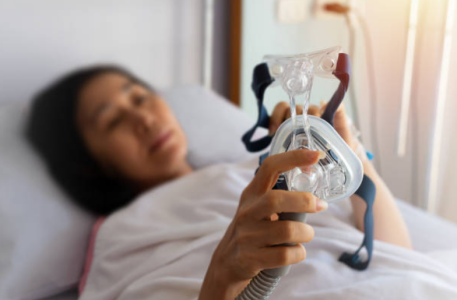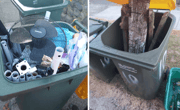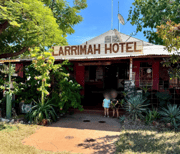Tech brand sleep aid puts health at risk in new lawsuit
By
Gian T
- Replies 4
If you or a loved one uses a sleep aid device to help manage sleep apnoea, you might want to pay close attention to the latest news shaking up the world of health technology.
The Australian government has launched a significant lawsuit against a global tech giant, claiming that some of its popular sleep aid machines pose serious health risks to users.
The heart of the issue lies in certain ventilators and sleep therapy devices sold by Philips, including well-known brands like BiPAP, DreamStation, OmniLab, and REMstar.
These devices, designed to help people with sleep apnoea breathe easier at night, contained a special foam meant to reduce noise.
Unfortunately, it’s alleged that this foam—made from polyester-based polyurethane—could break down over time, releasing tiny particles and potentially harmful chemicals into the air path.
According to the Therapeutic Goods Administration (TGA), Australia’s health watchdog, patients using these devices faced a 'real risk' of inhaling or swallowing these foam particles.
The potential health effects are nothing to sneeze at: skin, eye, and respiratory irritation, headaches, asthma, and even impacts on the reproductive system.
The TGA’s lawsuit goes further, warning that long-term exposure could damage or kill cells, cause genetic damage, or even lead to cancer.
The saga began in June 2021, when Philips issued a global recall of ten different sleep aid models after the risks became apparent.
But the story didn’t end there. The TGA alleges that after the recall, Philips continued to sell another device—the Trilogy 100—which used a different type of foam (silicone-based) that could also become dislodged and block the air path.
This could lead to dangerously high carbon dioxide levels or low oxygen in the blood, both of which are serious medical emergencies.
What’s particularly concerning is that, according to the TGA, Philips didn’t conduct any risk analysis on these products until early 2021—years after they’d already been on the market.
The TGA is seeking financial penalties and wants Philips to cover legal costs.
The lawsuit is focused on Philips’ actions before and during the 2021 recall, not on the devices currently being sold in Australia.
Philips, for its part, says it has since conducted extensive testing—both in-house and with independent experts—and claims that the sleep therapy devices now on the market are safe for patients.
A Philips spokeswoman stated: ‘The proceeding does not make allegations about the quality and safety of products currently marketed in Australia by Philips.’
She added that recent testing found no appreciable risk to patient health from the current devices.
If you’re using a Philips sleep aid device—especially one purchased before June 2021—it’s a good idea to check whether your model was affected by the recall.
You can do this by visiting the Philips recall website or contacting your healthcare provider.
If you have any concerns about your device, don’t hesitate to speak with your doctor or sleep specialist.
It’s also worth noting that the TGA and Philips have both provided resources and support for affected patients, including information on how to get a replacement device if needed.
This case is a stark reminder of how important it is for companies to test medical devices before they hit the market rigorously—and to act quickly if problems arise.
For many Australians, especially those over 60, sleep apnoea is a common condition, and reliable, safe treatment options are essential for maintaining good health and quality of life.
 Have you had trouble with a recalled device? Did you find the replacement process straightforward? Let us know in the comments below. Your stories could help other members of our community stay informed and safe.
Have you had trouble with a recalled device? Did you find the replacement process straightforward? Let us know in the comments below. Your stories could help other members of our community stay informed and safe.
The Australian government has launched a significant lawsuit against a global tech giant, claiming that some of its popular sleep aid machines pose serious health risks to users.
The heart of the issue lies in certain ventilators and sleep therapy devices sold by Philips, including well-known brands like BiPAP, DreamStation, OmniLab, and REMstar.
These devices, designed to help people with sleep apnoea breathe easier at night, contained a special foam meant to reduce noise.
Unfortunately, it’s alleged that this foam—made from polyester-based polyurethane—could break down over time, releasing tiny particles and potentially harmful chemicals into the air path.
According to the Therapeutic Goods Administration (TGA), Australia’s health watchdog, patients using these devices faced a 'real risk' of inhaling or swallowing these foam particles.
The potential health effects are nothing to sneeze at: skin, eye, and respiratory irritation, headaches, asthma, and even impacts on the reproductive system.
The TGA’s lawsuit goes further, warning that long-term exposure could damage or kill cells, cause genetic damage, or even lead to cancer.
The saga began in June 2021, when Philips issued a global recall of ten different sleep aid models after the risks became apparent.
But the story didn’t end there. The TGA alleges that after the recall, Philips continued to sell another device—the Trilogy 100—which used a different type of foam (silicone-based) that could also become dislodged and block the air path.
This could lead to dangerously high carbon dioxide levels or low oxygen in the blood, both of which are serious medical emergencies.
What’s particularly concerning is that, according to the TGA, Philips didn’t conduct any risk analysis on these products until early 2021—years after they’d already been on the market.
The TGA is seeking financial penalties and wants Philips to cover legal costs.
The lawsuit is focused on Philips’ actions before and during the 2021 recall, not on the devices currently being sold in Australia.
A Philips spokeswoman stated: ‘The proceeding does not make allegations about the quality and safety of products currently marketed in Australia by Philips.’
She added that recent testing found no appreciable risk to patient health from the current devices.
If you’re using a Philips sleep aid device—especially one purchased before June 2021—it’s a good idea to check whether your model was affected by the recall.
You can do this by visiting the Philips recall website or contacting your healthcare provider.
If you have any concerns about your device, don’t hesitate to speak with your doctor or sleep specialist.
This case is a stark reminder of how important it is for companies to test medical devices before they hit the market rigorously—and to act quickly if problems arise.
For many Australians, especially those over 60, sleep apnoea is a common condition, and reliable, safe treatment options are essential for maintaining good health and quality of life.
Key Takeaways
- The Australian government is suing Philips, alleging their sleep apnoea ventilators posed a risk of patients inhaling or swallowing harmful foam particles from degrading noise-suppressing material.
- Devices sold before June 2021 used polyurethane foam that could break down and be inhaled or ingested, potentially causing health issues such as irritation, headaches, asthma, and even genetic damage or cancer.
- Even after the recall in June 2021, the government claims Philips sold another dangerous device, the Trilogy 100, which also posed risks because parts of its silicone foam could detach and block the air path.
- Philips says the lawsuit only relates to products recalled in 2021, and recent testing shows their current devices on the market in Australia are considered safe for use.








